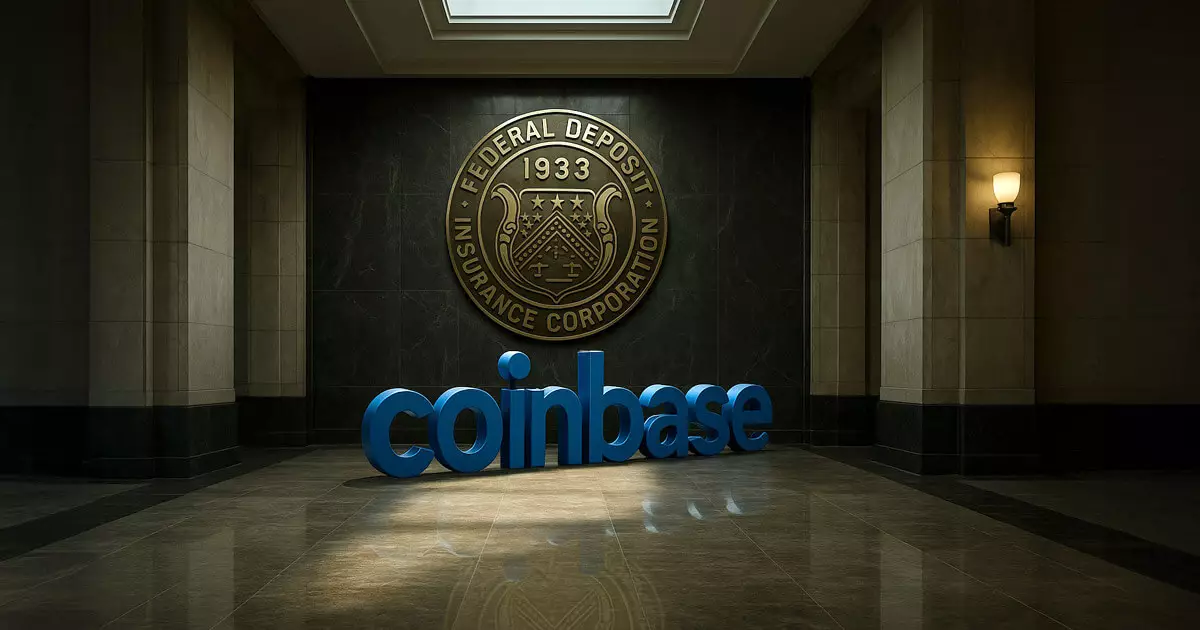At the heart of Coinbase’s objection to the FDIC’s request for additional time lies a disturbing truth about government authority in the evolving landscape of cryptocurrency. By attempting to sidestep the legal requirements of the Freedom of Information Act (FOIA), the FDIC is not merely asking for an extension; it is actively undermining accountability. Coinbase’s Chief Legal Officer, Paul Grewal, aptly labeled their request as “absurd.” It’s a reflection of a broader issue in which regulatory agencies like the FDIC seem to prioritize their own convenience over the principles of transparency that our democracy needs to function effectively.
The Power Plays of Regulatory Bodies
The actions of the FDIC serve as a microcosm of a growing concern in the financial industry—namely, the willingness of regulatory bodies to create hurdles for innovation. By imposing undue delays and redacting information that ought to be publicly accessible, the FDIC is not just hindering Coinbase; it is stifling an entire sector that could revolutionize our financial systems. Coinciding with previous findings that suggest the FDIC pressured banks to sever connections with crypto firms, this incident casts a pall over the regulatory intentions that should ideally foster growth and stability, not insecurity and retreat.
Redactions That Reveal Inadequacies
The redacted documents provided by the FDIC have come under sharp criticism. Coinbase’s assertion that these documents offer little to no real insight highlights a disconcerting trend where regulatory agencies are more concerned with protecting their image than they are with fostering a healthy ecosystem for future technologies. By over-censoring the information, the FDIC not only raises questions about its own credibility but also fuels speculation about the motivations behind such excessive caution. In an age where information is power, the attempt to obfuscate the truth is wholly unacceptable.
The Ripple Effect on Innovation
The consequences of the FDIC’s actions go beyond Coinbase and its legal standing; they have the potential to have a chilling effect on innovation across the cryptocurrency landscape. When government entities create an atmosphere of fear and uncertainty, startups and established firms alike are left questioning the viability of their operations. If regulatory agencies fear to operate transparently, how are innovators supposed to survive in an atmosphere that demands rapid adaptability? Coinbase aims to expose these weaknesses, and their call for transparency could ultimately pave the way for a more conducive environment for digital assets.
Crypto’s Right to Exist
Coinbase’s struggle represents more than just a legal fight; it encapsulates the broader narrative of cryptocurrencies’ right to exist unencumbered by outdated bureaucratic frameworks. The allegations that various banks have been coerced into abandoning digital asset firms demonstrate a systemic issue that must be addressed. Such actions do not simply harm individual companies; they hinder the growth of a new financial reality that promises greater inclusivity and efficiency. It’s time for regulators to recognize that their heavy-handed approach may lead to more problems than it solves.
Future Implications
Looking forward, Coinbase’s legal stand serves as a critical reminder of the importance of defending transparency in governance. The final rulings in this case may very well set a precedent that dictates the relationship between emerging technologies and existing financial watchdogs. As the crypto sector continues to grow, the findings against the FDIC should resonate beyond this singular issue, prompting a necessary reevaluation of how we govern innovation in the 21st century.
While the FDIC may cower behind veils of secrecy, Coinbase stands as a beacon for what regulation should aspire to be—fair, transparent, and supportive of new economic paradigms.
















Leave a Reply